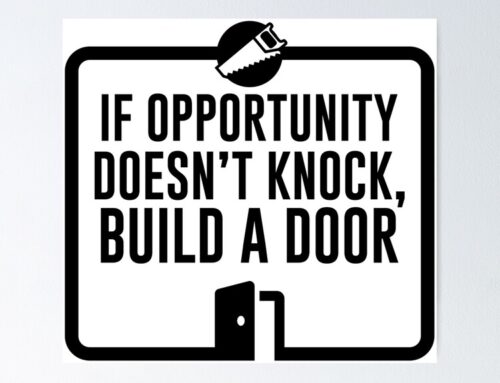How To Build Your Real Estate Marketing Plan

If you’re a real estate agent, you know that a great real estate marketing plan is essential to your success. But what’s the best way to go about it?
Check out this template for creating your real estate marketing plan! With this guide, you’ll have everything you need to get started.
So what are you waiting for? Get started today!
Establish Your Goals
When creating your real estate marketing plan, you first need to establish your goals. What do you want to achieve with your marketing ideas? Do you want to increase leads? Convert leads at a higher percentage? Grow your brand awareness?
Think with the end in mind. What do you hope to accomplish by setting a specific goal? Here are a few things a goal needs to be effective:
- Specific – Don’t generalize a big idea. The more detailed a goal, the better.
- Measurable – You should be able to tell if you’re making progress towards your goal or not.
- Achievable – Make sure your goal is something you can achieve.
- End Date – Give your goal a timeframe so you can track your progress.
Whatever your goals may be, make sure to write them down so you can track and measure your progress. These goals might look something like this:
- Increase web traffic by 25% within six months
- Direct mail your farm area once per month for the next six months
- Increase conversion rate from lead to appointment from 1% to 3% this year
- Generate 500 leads in the next three months
- Add 100 subscribers to your email marketing list by the end of the year
- Increase social media followers by 20% by March
- Publish one blog post per week for the next quarter
- Create three real estate investor targeted videos this month

Goals And Key Performance Indicators
These goals then become Key Performance Indicators (KPIs) that you can track weekly, monthly, and quarterly. It’s important to follow both lead and lag measures when establishing your goals and setting your Key Performance Indicators.
You perform lead measures to achieve your goal (or lag measure). For example, increasing content marketing production by 25% is a lead measure to increase organic traffic.
Lag measures are the results of your lead measures. In this example, if you increase content production by 25% and, as a result, organic traffic goes up by 30%, then your lag measure has outperformed your lead measure. That’s always exciting!
Put another way, you’re in control of your lead measures but always want to track the effectiveness of your lag measures. While you may not always control your lag measures results, you bet that your lead measures will make an impact. If this is not the case, and you are hitting your lead measures, it may be time to adjust your focus.
Once you’ve established your goals and key performance indicators, be sure to put them somewhere that you’ll see them regularly (daily). Too many real estate agents write down goals only to never see them again.
These goals need to become your guiding light. Every action you take daily should be moving the needle towards hitting your goals (rather than getting distracted by the next shiny object).
- Research Your Target Market
Once you know what you want to achieve, it’s time to research your target market. Who are they? What do they want? How can you reach them?

Why You Should Define Your Target Market
To effectively maximize and eventually scale your real estate marketing ideas, you need to define your target market (or audience).
By defining your target market, you’ll eliminate assumptions about your audience. It’s easy to assume you know what your audience likes and who it’s made up of, but when you objectively look at the data versus your gut, you may realize that some of your assumptions were wrong.
Also, when you define your target market, your marketing collateral will hit home quicker and to a higher percentage of those in your circle.
How To Research Your Target Audience
One great way to research your target market is to look at your current and past clients. What similarities do they share? What are their demographics?
You can also use social media data to get a sense of your target market. What platforms do they use? Take notes of the kind of content they share. What are their interests?
Surveying Or Interviewing Your Target Audience
You can also survey your current and past clients to get more information. Surveying is a great way to get feedback on your real estate marketing effort and find out what’s working (and what’s not).
Ask yourself, what are the top three things I want to learn about my audience right away to help you form a short survey.
Choose a survey platform like SurveyMonkey, Google Forms, or Crowdsignal to help you collect responses.
Promote your survey via social media and email. Even consider a prize or reward for those that participate.
Another great strategy is to interview those that have used you as their real estate agent. Interviewing past clients will not only give you insight into why they chose you as their agent but also can give you content to use as a success story for future real estate business.
Even conducting a short interview via Zoom can be a great way to collect these responses and testimonials!

What Types Of Target Markets Exist?
Often you’ll find that the vast majority of your audience falls into a few different categories, called segments. It’s essential to establish which segments are worth most of your efforts and focus on two to three segments ONLY initially.
For a real estate agent, these segments may break down like this:
- Age
- Gender
- Career
- Location
- Buyer
- Seller
- Niche
- Lifestyle
- Hobbies
When you clearly understand your target market, you can create content and messaging that resonates with them. You’ll also have a better idea of where to focus your real estate marketing efforts.
While many real estate agents try to become a jack-of-all-trades when it comes to social media, focusing on one primary marketing channel at the beginning (where most of your audience is already at) is much more effective.
- Develop Your Real Estate Marketing Strategy
Now that you know your target market and what you want to achieve, it’s time to develop your marketing strategy.
What platforms will you use for your real estate business? What kind of content marketing will you create? How often will you post?
There is no one-size-fits-all answer to this question – it will vary depending on your target market and goals. However, here are some tips to get you started:
- Use a mix of paid and organic social media tactics
- Incorporate email marketing into your real estate marketing plan
- Create targeted content for each social media platform
- Use video, images, and text to create content
- Post at least twice a week on the social media channel of your choice
- Participate in discussion threads and answer questions
- Share interesting articles, images, and videos that are relevant to your real estate business
- Mix physical and digital marketing into your overall strategy
- Engage with your audience by answering questions and responding to comments
- Plan out your content calendar in advance
- Make sure your website is up-to-date and user-friendly

Play To Your Strengths
Another thing to consider when developing your marketing strategy is to play to your strengths. What do you already like doing, or what interests you that others do for their real estate marketing ideas?
If you’re unsure where to start, consider following a few different real estate agents and see whose style resonates with you. It’s also a good idea to find a mentor or coach in the real estate industry who can help guide and support you.
This mentor or coach doesn’t always need to be someone you pay monthly for coaching. I’ve had numerous mentors and “coaches” over the years. Some who I’ve never met and likely have never heard of me. I’ve followed them so closely that I can extract everything they do and replicate it with my personality.
The Advantages Of Developing Your Marketing Strategy
Some of the advantages of developing your real estate marketing strategy include:
- Spending your money in the right place
- Attracting more leads and clients
- Building trust with a potential client
- Creating consistency with your branding
- It gives you a guiding light
Without a defined real estate marketing strategy, it’s not easy to know what you should be doing and when.
- Execute Your Real Estate Marketing Plan And Track Results
Once you have your marketing strategy in place, it’s time to execute it!
This will involve creating content, scheduling posts, participating in discussion threads, etc.
It’s also important to track the results of your efforts. This can be done in several ways, such as:
- Using Google Analytics to track website traffic
- Creating custom conversion tracking in Facebook Ads
- Tracking clicks on links in email marketing messages
- Measuring the reach and engagement of social media posts
- Comparing leads and sales generated from different real estate marketing channels
- Analyzing the results of your marketing efforts over time and making changes as needed
Here are five tips on executing your real estate marketing plan and tracking the results.

Start With A Clearly Defined Plan
The more work you do up-front, clearly defining your real estate marketing plan, the easier it will be to execute. Defining your marketing plan includes everything from identifying your target market to detailing your goals and strategy channels.
This clarity will also help you track the results of your efforts more effectively.
Don’t Second Guess Yourself
You need to create the plan upfront and work that plan for execution to occur. When you second guess mid-stream, you often never understand its actual effectiveness without letting the project materialize.
When you want to try something new, make a note of it. Once you’ve completed your original plan, then implement the new strategy.
This also demonstrates that it’s vital to have shorter timeframes than longer ones.
Visualize Your Goals
Visualizing your goals is two-part. The first part is to create a vision board that shows what you stand to gain by effectively implementing your real estate marketing plan.
This is your “why.” I believe that you can make anything happen when you visualize yourself making it happen.
Secondly, create a visual for the tracking and progress of your goals. I know agents that print out a sheet of paper with drawings of the number of homes they want to sell and cross them out as they close each deal throughout the year.
You can do this with any goal you set for yourself. It’s motivating and allows you to stay focused on what’s important.

Gamify The Results
One way to keep yourself motivated and on track is to gamify the results of your real estate marketing efforts.
This could involve setting a goal for the number of leads you want to generate in a month and giving yourself a point for every lead.
Add up the points at the end of the month and see how you did.
This could also be done with social media followers, website visitors, or any other metric you’re tracking.
The key is to make sure the game is motivating and fun for you.
Use An App
Stride, Coach.me, and Goals On Track are great apps to help you stay on track with your real estate marketing goals.
They provide a way to track and measure your progress, set reminders for important tasks, and provide support and accountability.
Get An Accountability Partner
An accountability partner can help keep you on track with your real estate marketing goals.
They can be someone you report to regularly or meets with you regularly to help keep you on track.
Finding someone who shares the same goals and wants to track similar efforts to you is incredibly effective. This allows you to “compete” amongst each other with the upside that you both win by taking massive action.
- Adjust Your Real Estate Marketing Plan As Needed
The final tip is to be prepared to adjust your real estate marketing plan as needed.
The real estate market is constantly changing, so it’s essential to be prepared to adjust your marketing plan accordingly.
This could involve changing your target market to changing the channels you’re using.
The important part is that you’re constantly monitoring the results of your efforts and making changes as needed.

How Often Should You Adjust The Plan?
How often you adjust your real estate marketing plan depends on how long you’ve been working on a plan. If you are just getting started with your marketing plan, you’ll need to set shorter timeframe goals. You’ll constantly learn new things upfront and need to adjust more frequently.
However, as you become more seasoned with your marketing efforts, you’ll be able to make fewer changes and adjust at longer intervals, like quarterly or semi-annually.
What Types Of Adjustments To Make
Because the real estate market and marketing strategies are constantly in flux, you’ll need to make both small and large adjustments from time to time.
Some of the adjustments you’ll likely need to be aware of are:
Goal adjustments – you may have set a goal too high or too low, especially when starting your plan. With experience, you’ll soon realize what’s realistic and be able to set more accurate goal numbers.
Strategy adjustments – sometimes, you’ll realize one strategy isn’t working as well as you had hoped, so you’ll need to switch it up entirely.
Timeframe adjustments – perhaps the goal or plan you’re focused on is working, but now you need to adjust the timeframe it takes to implement.
Tactics adjustments – if you still believe in the strategy but maybe you chose the wrong tactic to focus on and track.
Overall, finding the balance between changing too frequently yet not impeding progress may seem difficult at first. However, over time you’ll get a better feel for this.

Conclusion
So there you have it – an essential guide to real estate marketing. It’s not an exhaustive list, but these are the critical steps to set you on the path to success.
Of course, remember that no plan is static, and you will need to adjust as needed depending on your target market, goals, and resources.
But if you can take these five steps and apply them diligently, you’ll see results in your business.
Are you ready to get started? In that case, I encourage you to download my free real estate marketing plan template, which will help walk you through each of these essential steps in more detail. Good luck!
Article by Kyle Handy

206-391-5682
i2i@i2idirectmarketing.com
www.i2idirectmarketing.com
“…all deliveries GPS tracked…”




